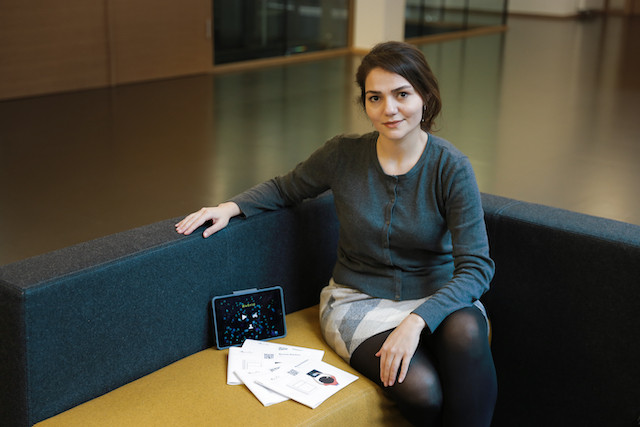MaGrid which uses purely language-free, grid-based exercises, could be transformational for young people who struggle with maths because of language barriers or because they are hard of hearing.
“In cycle 1 where students start schooling, over 65% of students are second language learners,” says Tahereh Pazouki, who developed the programme as part of a doctoral research project. “It means they’re not familiar with the language of instruction: Luxembourgish. And these students are at risk of obtaining a poor maths foundation and lagging behind native speakers.”
The linguistic diversity of learners in Luxembourg has often been blamed for the country’s poor performance in international assessment Pisa. Luxembourg has recorded below average results in maths, as well as science and reading since 2000 in this triennial OECD survey.
MaGrid removes the linguistic element from maths training by offering language-free visual tasks through a workbook and an app that can be accessed on tablet or phone—essentially learning by doing. In the first curriculum cycle developed by Pazouki, the programme covers the teaching visual spatial skills to help build a foundation for learning maths. “In pre-school, it could be processing information, seeing something, processing the information and creating an output, using your finger.”
How it works
As an example, she demonstrates in the workbook a diagram composed of triangles and rectangles that learners must recreate on a tablet using their finger to move shapes. While the example is simple, Pazouki believes there are no limitations in terms of what mathematical concepts can be taught without using language. She recalls that when she was studying computer science, she frequently watched YouTube videos to better understand engineering maths, a complex area of mathetmatics. “I couldn’t understand the language but I looked at the steps they were taking. It worked very well for me.”

Photo shows a MaGrid learning pack, one of scores being sent to primary schools in Luxembourg. Photo: LetzMath
The MaGrid method has been tested by teachers in 19 schools in Luxembourg where it helped close the performance gap between native and non-native speakers. “This was the biggest achievement and the interesting part is that the testing was still with language. Only the training was with language but they could still transfer knowledge to testing in language which shows how effective the training programme was,” said Pazouki.
When Pazouki and her team published the results, which were scientifically validated by research studies at universities in France and Belgium, she learned the issue wasn’t only specific to Luxembourg. “We started getting interest from other countries. We didn’t expect this,” she said. This year, MaGrid was also one of 40 startups to win a World Summit Award, handed out to businesses that contribute to the UN Sustainable Development Goals.
From research to business
In September 2020, the Iranian national established LetzMath, to formalise its activities. It has already sold a licence to the Luxembourg education ministry, and is now setting its sights beyond the border, while developing a programme for cycle 2 in Luxembourg schools.
Currently housed at the university incubator, Pazouki is currently sending out the MaGrid materials to all Luxembourg primary schools as well as specialist learning centres like the logopedic centre for the official launch in Luxembourg public schools on 4 March. While not designed as a homeschooling tool, Pazouki says provided parents have the physical materials, the programme lends itself to this way of working and can even remove some of the pain for teachers and parents managing homeschooling.
